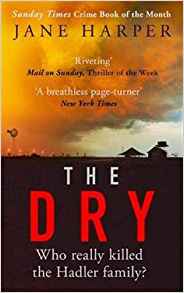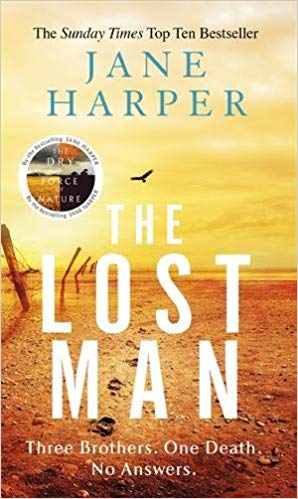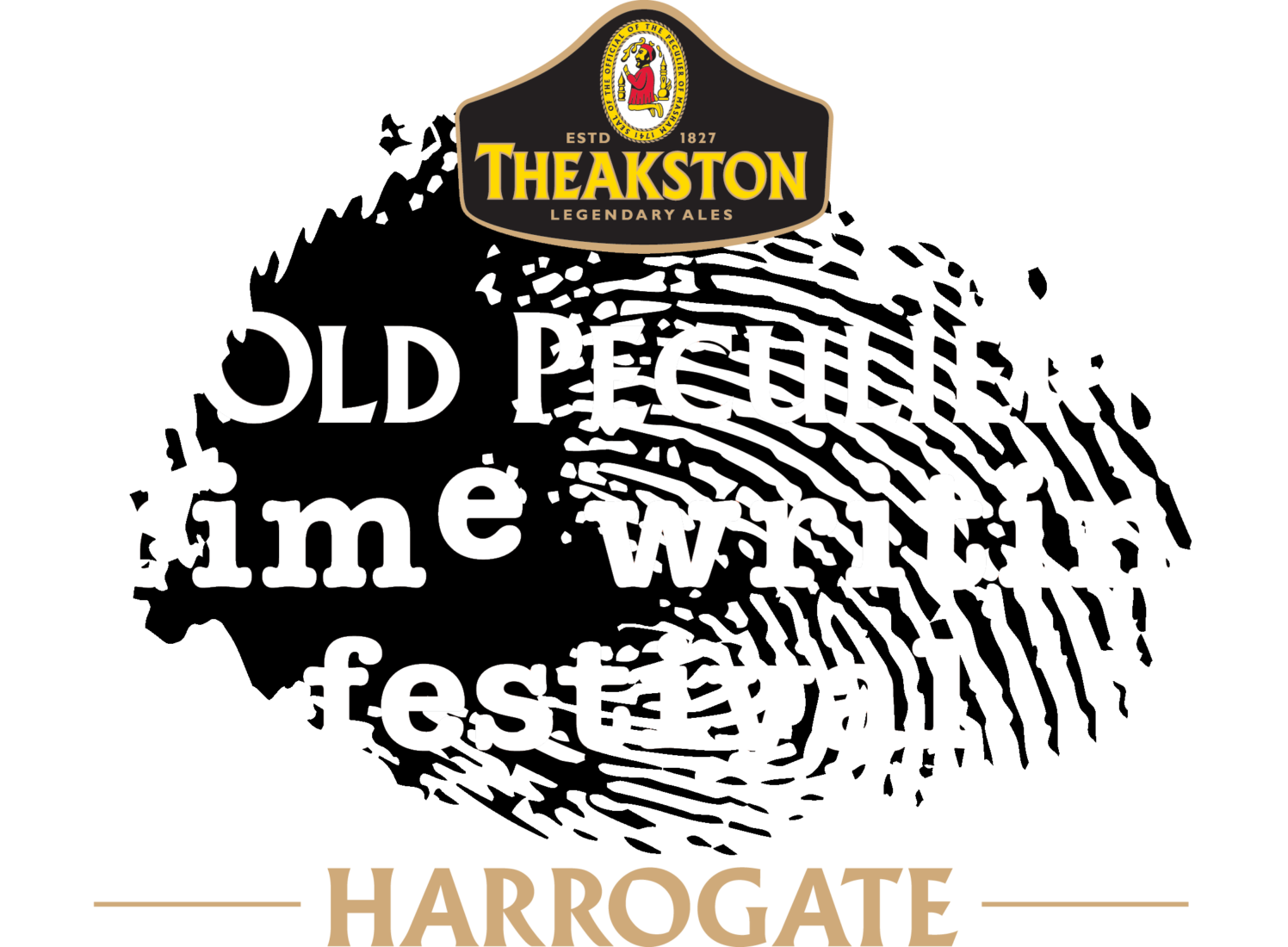
I loved every single page of ‘The Dry’, especially its descriptive passages, which I thought some of the best I’ve ever read; the images they conjured up of the Australian outback stayed with me long after I finished the book.
‘The Dry’ was Jane Harper’s debut novel and a global smash; since its publication she has published a sequel and is now in London to promote her third novel, ‘The Lost Man’, which the Evening Standard has described as “her best book yet”. I was over the moon to secure a ticket to a Waterstones book launch sponsored by FANZA and the Australian High Commission: thanks to the latter, we enjoyed some delightful ‘Dry’ martinis.
Harper only arrived in London last night, yet looked impossibly glamorous as she joined CWA winner and fellow author Stella Duffy on stage to talk about her books, her previous career as a journalist and her hopes for the future.
Starting at the beginning: and her career as a print journalist did, Harper believes, stand her in good stead as she worked towards becoming a novelist – in particular, the discipline of meeting deadlines and getting to know her audience:“Your readers have so many demands on her time that it’s imperative you engage with them”.
That’s not to say that writing fiction is easy. Harper was still working full time as a journalist when she was writing ‘The Dry’ and had to “trick” herself into continuing writing when she got home at the end of a long day by remaining in her work clothes. You have, she says, to be committed: “It can feel frivolous, like a creative hobby – but you have to treat it like training for a marathon”.
Harper’s approach paid off when she entered an ‘Unfinished Manuscript’ competition – and won. This led to advances by agents and publishers “and provided an all-important foot in the door in Australia”. Working with editors and publishers is an on-going learning process; Harper admits to still finding their feedback “confronting”, even though it’s coming from a positive place. However, she has learned to “embrace” their suggestions.
To be a writer, both Harper and Duffy agreed, it has to be enough to enjoy the process – without the expectation of being published. “The writing has to be enough of itself: you do it for the love of it”.
Unlike Harper’s previous novels, ‘The Last Man’ is a standalone novel. Its setting is located hours from anywhere – this is a book “very much about isolation, and how it affects people”. Jane told us that she enjoyed developing the characters of the three brothers at the heart of this novel and, equally, enjoyed her research and discovering an isolated part of Australia with which few people are familiar.
During her research, Harper was assisted by a retired police officer who had worked in a tiny outback town, Birdsville, Queensland, for ten years – with sole responsibility for an area the size of the UK. He met Jane off the plane and drove her 600 miles across the desert to Birdsville: a journey which lasted 11 hours and during which they saw just 15 cars. When they finally arrived, recalled Jane, she was struck by just how much she had underestimated the environment – and how dangerous it is.
To Stella Duffy’s statement “You write men really well” Harper modestly demurred, responding that she simply tries to think up the characters who will tell the story; she doesn’t focus on gender, but on universal themes: “…loneliness, depression, fear of the future”. The setting is equally important: Harper creates it early on and weaves it through her plot, mindful of how it affects her characters. “It’s never just a backdrop – and that’s why ‘The Lost Man’ couldn’t be set anywhere else”.

Parts of ‘The Lost Man’, stated Stella Duffy, are “hard to read”. Elaborating, Duffy explained that she grew up in a violent, New Zealander family – whose tension she recognised in ‘The Lost Man’, simmering away. Harper explained how she met with a Birdsville-based nurse who talked to her about various issues within the local community which manifest themselves in certain ways – because there’s no way of stopping them. People, including blood relatives, live in each other’s pockets – and a vicious circle is created, in which no one dares intervene. “The days are so familiar, day in, day out: life festers and it’s difficult to make changes”.
A recurring theme in Jane Harper’s books is that of being “from and not from” a place: an outsider looking in. That might be explained by the fact that Harper was born in England and moved to Australia when she was eight. Since then, she’s moved back & forth a number of times but has remained in Australia for the past ten years and consequently feels “very Australian”. So much so that a copy of ‘The Lost Man’ will make an appearance in ‘Neighbours’ this September.
Further screen success beckons: a movie adaptation of ‘The Dry’ was filmed earlier this year, in Victoria – with Jane appearing as an extra. The film’s director, Rob Conner, also wrote its screenplay and Harper is, unsurprisingly, hugely excited about it, although she’s yet to watch the final version (“You need to let people have creative direction”). For my part, I can’t wait to see this film, which I’m certain will lend itself beautifully to the big screen.
Whose writing does Harper admire? A self-confessed crime fiction fan, she cites Val McDermid and Ian Rankin as influences and recommended we seek out the work of Australian writer, Helen Garner, a former journalist who “writes engaging long-form true crime”: “She handles topics sensitively and can say a lot with a few words”.
This was an engrossing encounter between two highly skilled writers and, luckily for me, I shall get to see both of them again at this year’s Old Peculier Crime Writing Festival, in Harrogate. They’ll be discussing the phenomenon that is ‘Antipodean Noir’ and I, for one, cannot wait.

Glad you got to hear her talk. I love all her novels and can’t wait to see the film version of The Dry.
LikeLiked by 1 person
Me too, Bev: I think ‘The Dry’ will translate beautifully to the big screen.
LikeLike
Excellent books and has a great insight into the isolation in small towns.
LikeLiked by 1 person
Yes, Harper excels at that, doesn’t she? Having only ever lived in cities I find it hard to imagine what it would be like to live in such an isolated area – but Harper brings the experience to life very vividly.
LikeLike
Jane Harper is a fabulous Aussie writer. Her books are in big demand in Australia. And yes… Helen Garner is well worth reading.
LikeLiked by 1 person
I completely agree, Wendy: Harper is a wonderful writer and possesses such an evocative turn of phrase. Thank you for recommending Helen Garner: I shall definitely seek out her work.
LikeLike
I love Nora Roberts and Sandra Brown! I would love to go to one of their book signings. Your description of these books and the author make me want to read all of these novels. Thank you for sharing 🦋🌻🌞
LikeLiked by 1 person
I’m so glad you enjoyed the post – and please do try Jane Harper’s books; she’s a great writer. I love Nora Roberts, also; I hadn’t heard of Sandra Brown previously, but now that you’ve recommended her will definitely seek her out.
LikeLike
I did enjoy your post! I will give Jane Harper a try!! You should definitely give Sandra Brown a try. Have a wonderful blessed day ❤🌞🌻🦋
LikeLiked by 1 person
I have been wanting to read The Dry since it came out and still haven’t managed it. I am currently reading The Tree of Man by Patrick White which, although entirely different to Jane Harper’s work, is imbued – for me at least – with a visceral sense of place in the outback. Having read your account of what sounds like a fascinating discussion, I’m thinking I might go on to The Dry after White. I have a feeling I won’t want to let go of Australia too quickly.
LikeLiked by 1 person
I thoroughly enjoyed ‘The Dry’ and would definitely recommend it. I hadn’t heard of Patrick White’s book until you mentioned it, but having just looked it up, am intrigued and have added it to my (ever-expanding!) Must Read list.
LikeLiked by 1 person